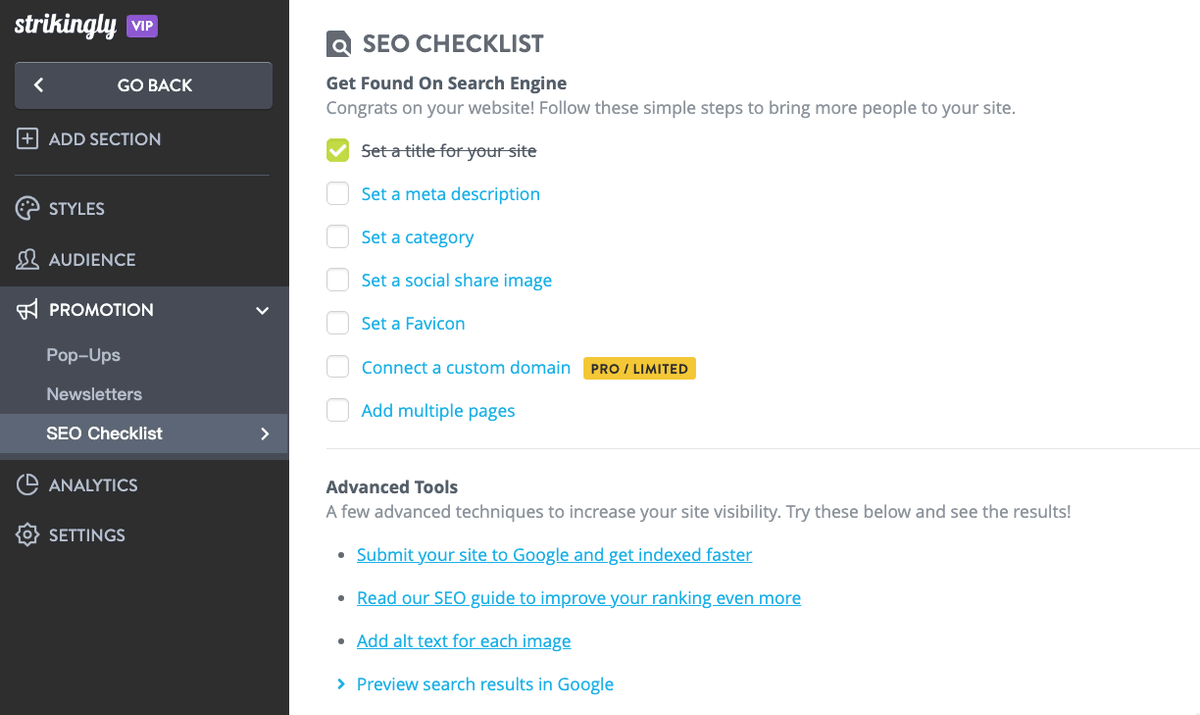Tools for Website SEO Audit: Uncover and Fix Issues
Tools for Website SEO Audit: Uncover and Fix Issues

In today's digital landscape, a thorough Website SEO audit is essential for any business looking to enhance its online presence and drive traffic. An SEO audit provides insights into how well your website adheres to best practices for search engine optimization, allowing you to identify areas that need improvement. By understanding the importance of an SEO audit, businesses can effectively strategize their online marketing efforts and boost their search rankings.
Understanding the Importance of a Website SEO Audit
A Website SEO audit serves as a health check for your site, revealing how it performs in terms of visibility and user experience. This process helps uncover common SEO issues in business websites, such as broken links or slow-loading pages, which can significantly impact user engagement and conversion rates. Regular audits enable businesses to stay ahead of competitors by ensuring their websites are optimized for search engines and visitors.
Overview of Tools for Website SEO Auditing
Numerous tools are available for conducting a comprehensive website SEO audit, each offering unique features tailored to different needs. Popular options like Google Search Console provide valuable insights directly from Google about your site's performance, while tools like SEMrush and Ahrefs offer in-depth analysis of keywords and backlinks. Familiarizing yourself with these tools can streamline the auditing process and make it easier to identify technical SEO errors that need fixing.
Steps to Conduct an SEO Audit for Your Website
To effectively conduct an SEO audit for your website, gather data using various tools designed specifically for this purpose. Analyze your site's technical aspects—check page speed, mobile responsiveness, and crawl errors—before moving on to content quality assessments. Finally, prioritize addressing common issues identified during the audit process so that you can implement solutions quickly and efficiently.
What is a Website SEO Audit?

Scribble Template
A website SEO audit comprehensively evaluates your website's performance in search engines. The primary purpose is to identify areas for improvement that can enhance your site's visibility and ranking. By conducting an effective audit, you can ensure that your site adheres to best practices and effectively meets the needs of users and search engines alike.
Definition and Purpose
At its core, a website SEO audit involves analyzing various elements of your site to determine how well it aligns with search engine optimization standards. This process helps uncover issues hindering your site’s performance, such as broken links or poor keyword usage. The ultimate goal is to improve your website’s ranking on search engine results pages (SERPs) by addressing these deficiencies.
Key Components of an Audit
Several key components should be examined closely when performing a website SEO audit. These include technical aspects like site speed, mobile responsiveness, and crawl errors, crucial for user experience and search engine indexing. Additionally, content quality and optimization play vital roles; ensuring that your content is relevant and engaging can significantly impact its effectiveness in attracting organic traffic.
Benefits for Businesses
The benefits of conducting a website SEO audit are substantial for businesses looking to boost their online presence. Firstly, it helps identify common SEO issues in business websites that may hold back growth potential or customer engagement. Secondly, by implementing the recommendations from the audit, businesses can increase their chances of higher rankings on SERPs, leading to increased traffic and potentially more conversions.
Popular Tools for Website SEO Auditing

When conducting a website SEO audit, utilizing the right tools can make all the difference in identifying and addressing common SEO issues in business websites. Each tool offers unique features that can help streamline the process and provide valuable insights. In this section, we'll explore some of the most popular tools for website SEO auditing, ensuring you have a comprehensive understanding of what's available.
Google Search Console
Google Search Console is essential for anyone looking to conduct a website SEO audit effectively. It provides critical data about how your site interacts with Google's search engine, including indexing status and search queries that lead visitors to your site. Using this tool, you can quickly identify common SEO issues in business websites, such as crawl errors or mobile usability problems.
One of the standout features of Google Search Console is its ability to report on technical aspects like page speed and mobile responsiveness. This information is vital when following steps to conduct an SEO audit for your website since resolving these issues can significantly improve your search rankings. Plus, it’s free—making it accessible for businesses of all sizes.
SEMrush
SEMrush is another powerful tool that simplifies the process of conducting a website SEO audit while offering many additional digital marketing features. With its comprehensive site audit feature, SEMrush scans your website for over 130 technical issues related to your site's health and performance. This makes it easier to pinpoint how to fix technical SEO errors before they affect your rankings.
In addition to identifying issues, SEMrush provides actionable recommendations explicitly tailored to your site's needs—helping you navigate through the steps to conduct an SEO audit for your website efficiently. The platform also includes keyword research tools, and competitor analysis features that are invaluable when optimizing content quality and overall strategy. Overall, it's an all-in-one solution that many marketers swear by.
Ahrefs
Ahrefs is well-known in the digital marketing community as one of the most robust tools for performing a detailed website SEO audit. Its user-friendly interface allows users to analyze backlinks, keywords, and content performance effortlessly—key components when evaluating how well-optimized a site is overall. Ahrefs’ Site Audit feature crawls your entire site, highlights critical areas that need attention, and is directly related to fixing common technical SEO errors.
The depth of data provided by Ahrefs helps businesses understand their online presence better while giving insights into competitors' strategies, making it easier for you to adapt accordingly during an audit process. Moreover, Ahrefs continuously updates its database, ensuring you're always working with current information relevant to any steps taken toward improving search engine visibility through effective audits.
Moz Pro
Moz Pro rounds out our list as another excellent option when looking at tools for website SEO auditing; it's mainly known for its user-friendly design, which appeals even if you're not highly technically inclined! Moz's Site Crawl feature identifies potential issues within seconds while clearly explaining how these problems could impact search rankings—a perfect fit if you're new at conducting audits.
In addition to technical insights, Moz Pro offers keyword tracking capabilities, allowing users not only to fix existing problems but also to plan future content strategies based on real-time data trends observed within their niche market space! Its easy-to-understand metrics make it simple, even if you're starting with the steps necessary to conduct an effective website SEO audit successfully!
Common SEO Issues in Business Websites

Strikingly Responsive Website Design
When conducting a Website SEO audit, many businesses encounter several common issues that can hinder their online presence. Identifying these problems is crucial for improving search engine rankings and user experience. This section will explore the key areas where businesses often struggle, including technical SEO errors, content quality and optimization, and mobile responsiveness.
Technical SEO Errors
Technical SEO errors are often the backbone of a successful website but can be easily overlooked during an audit. These errors can include broken links, incorrect redirects, and issues with site structure that prevent search engines from properly crawling your website. To effectively conduct an SEO audit for your website, it’s essential to identify these technical issues first so you can prioritize fixing them.
Common tools for website SEO auditing, like Google Search Console or SEMrush, can help pinpoint crawl errors and other technical glitches. Addressing these problems improves your site’s visibility and enhances user experience by ensuring visitors find what they’re looking for without frustration. Remember, fixing technical SEO errors is one of the critical steps to conduct an SEO audit for your website successfully.
Content Quality and Optimization
Content quality significantly affects how well your website performs in search engine rankings. During a Website SEO audit, evaluating whether your content is relevant, engaging, and optimized for target keywords is essential. Low-quality or duplicate content can severely impact your site's authority and ranking potential.
Optimizing content involves more than just keyword placement; it also requires ensuring that the information is up-to-date and valuable to users. Tools like Ahrefs or Moz Pro allow you to analyze content performance metrics such as bounce rates and time on page—key indicators of how well your audience engages with your offer. By improving content quality through optimization strategies, you're addressing one of the most common SEO issues in business websites.
Mobile Responsiveness
With mobile usage steadily increasing, ensuring your website is mobile-friendly has become more critical. A responsive design allows users to have a seamless experience across various devices—this helps retain visitors and impacts search engine rankings as Google prioritizes mobile-optimized sites in its algorithm updates. During a website SEO audit, assessing mobile responsiveness should be included on your checklist.
Suppose users struggle with navigation or loading times on their mobile devices due to poor design choices or unoptimized images. In that case, they're likely to leave quickly—a phenomenon known as bounce rate, which negatively affects overall performance metrics. Fixing this issue effectively requires design adjustments and testing across different devices using tools designed specifically to check mobile responsiveness. By addressing these aspects during an audit process focused on common SEO issues in business websites, you're setting yourself up for better engagement rates.
How to Fix Technical SEO Errors

Strikingly SEO Checklist
Fixing technical SEO errors is crucial in ensuring your website performs well in search engine rankings. A thorough website SEO audit will help identify these issues, but knowing how to address them is just as important. Here’s a breakdown of how to tackle common technical problems that can arise during your audit.
Identifying Crawl Errors
Crawl errors occur when search engines have trouble accessing your web pages, which can severely impact your visibility online. To identify these crawl errors, you can use tools for website SEO auditing, like Google Search Console, which provides detailed reports on any issues crawlers encounter. Regularly reviewing these reports lets you take proactive measures and ensure all pages are accessible and indexed correctly.
Once you've pinpointed the crawl errors, it's essential to categorize them into types such as 404 errors or server issues. Addressing these problems promptly will improve your site's overall health and enhance user experience. After fixing the problems identified, consider resubmitting the affected URLs through Google Search Console for re-indexing.
Improving Page Speed
Page speed is critical in user experience and search engine rankings; slow-loading pages can lead to high bounce rates and lost traffic. Conducting a website SEO audit should include testing your page speed using tools like GTmetrix or Google's PageSpeed Insights, which provide actionable recommendations for improvement. Common strategies include optimizing images, leveraging browser caching, and minimizing JavaScript.
To further enhance page speed, consider using content delivery networks (CDNs) that distribute your content across various servers worldwide for quicker access times. Reducing server response time by choosing reliable hosting solutions can significantly boost performance. Remember that improving page speed benefits SEO and keeps visitors engaged with your content longer.
Optimizing Meta Tags
Meta tags play an essential role in informing search engines about the content of your web pages; they are often the first impression users have when encountering your site in search results. During an effective website SEO audit, check if each page has unique title tags and meta descriptions that accurately reflect their content while incorporating relevant keywords naturally. This practice enhances click-through rates and helps improve rankings on search engine results pages (SERPs).
When optimizing meta tags, ensure they adhere to character limits—typically around 60 characters for title tags and 150 characters for meta descriptions—to avoid truncation in SERPs. Additionally, prevent stuffing keywords; instead, focus on creating compelling copy encouraging users to click through to your site from the results page. Regularly reviewing and updating meta tags is crucial as it aligns with evolving trends and user behavior.
Strikingly Features for Effective SEO

Strikingly Landing Page
When conducting a thorough website SEO audit, Strikingly offers several features that can significantly enhance your site's performance. These tools help you identify common SEO issues in business websites and provide easy implementation solutions. By leveraging Strikingly's capabilities, you can streamline the steps to conduct an SEO audit for your website and improve your overall online presence.
Built-in SEO Tools
Strikingly has various built-in SEO tools designed to simplify the auditing process. These tools allow users to easily manage meta tags, optimize images, and ensure proper URL structures—all essential components of an effective website SEO audit. With these features at your fingertips, addressing common SEO issues in business websites becomes much more manageable.
Moreover, Strikingly's built-in tools provide real-time feedback on how well your site is optimized for search engines. This means you can make adjustments on the fly, ensuring you're always aligned with best practices in digital marketing. Using these resources, you can confidently navigate the steps to conduct an SEO audit for your website without feeling overwhelmed.
User-Friendly Design for Mobile Optimization
Mobile optimization is crucial for any successful website in today's digital landscape—especially when considering a comprehensive SEO audit. Strikingly's user-friendly design ensures that all websites created on their platform are automatically optimized for mobile devices. This feature addresses one of the most common technical SEO errors in business websites: poor mobile responsiveness.
In today's mobile-first world, having a mobile-friendly website is crucial for SEO success. A well-optimized website can significantly improve your search engine rankings and drive organic traffic. Strikingly's user-friendly interface and powerful tools can help you identify and fix potential SEO issues.
Here are some tools and strategies to optimize your Strikingly website for mobile:
1. Use Strikingly's Built-in SEO Tools
- Keyword Research. Use Strikingly's keyword research tool to identify relevant keywords for your website.
- Meta Descriptions. Write compelling meta descriptions to improve your website's click-through rate.
- Image Optimization. Compress images to reduce load times and improve mobile performance.
2. Mobile-Friendly Design
- Responsive Templates. Strikingly's templates are automatically optimized for mobile devices.
- Clear and Concise Content. Use clear and concise language, and avoid excessive text.
- Fast Loading Times. Optimize your website's loading speed by minimizing image sizes and reducing HTTP requests.
3. Google Mobile-Friendly Test
- Free Tool. Use Google's Mobile-Friendly Test to assess your website's mobile-friendliness.
- Identify Issues. The tool will highlight any issues, such as content that is too narrow or text that is too small to read.
By following these tips and leveraging Strikingly's user-friendly tools, you can optimize your website for mobile devices and improve your search engine rankings. Remember, a mobile-friendly website is essential for success in today's digital landscape.
Integration with Google Analytics
One of Strikingly's standout features is its seamless integration with Google Analytics, a vital tool for anyone serious about conducting a detailed website SEO audit. This integration lets you directly track essential metrics from your Strikingly dashboard, such as visitor behavior and traffic sources. Understanding these analytics helps identify common SEO issues in business websites and provides insights into how to fix technical SEO errors effectively.
By analyzing data from Google Analytics alongside Strikingly's built-in tools, you can make informed decisions about where improvements are needed most urgently. Whether optimizing content or enhancing site speed, this integration empowers users to take meaningful action based on accurate data rather than guesswork alone. Ultimately, this combination makes it easier to follow through on the steps to successfully conduct an SEO audit for your website.
Final Thoughts on SEO Success

In wrapping up our discussion on the importance of a Website SEO audit, it's clear that these audits are essential for any business looking to enhance its online presence. Companies can significantly improve their search engine rankings and user experience by identifying and addressing various technical and content-related issues. Ultimately, a thorough understanding of the steps to conduct an SEO audit for your website can lead to better visibility and increased traffic.
The benefits of conducting a Website SEO audit are manifold, including improved site performance, enhanced user experience, and higher search engine rankings. Regular audits help pinpoint common SEO issues in business websites that might go unnoticed, allowing for timely fixes. Additionally, a solid audit process can provide valuable insights into your competition and market trends.
Several options stand out as particularly effective when it comes to website SEO auditing tools. Google Search Console is invaluable for monitoring site performance and indexing status, while SEMrush offers comprehensive analytics on keywords and backlinks. Ahrefs and Moz Pro also provide robust features that can help identify areas needing improvement during your Website SEO audit.
Achieving long-term success with your website requires regular attention to its SEO health through audits. Understanding how to fix technical SEO errors is crucial in maintaining optimal performance over time. Businesses can foster sustainable growth in their online visibility by leveraging the right tools for website SEO auditing and consistently applying best practices.
